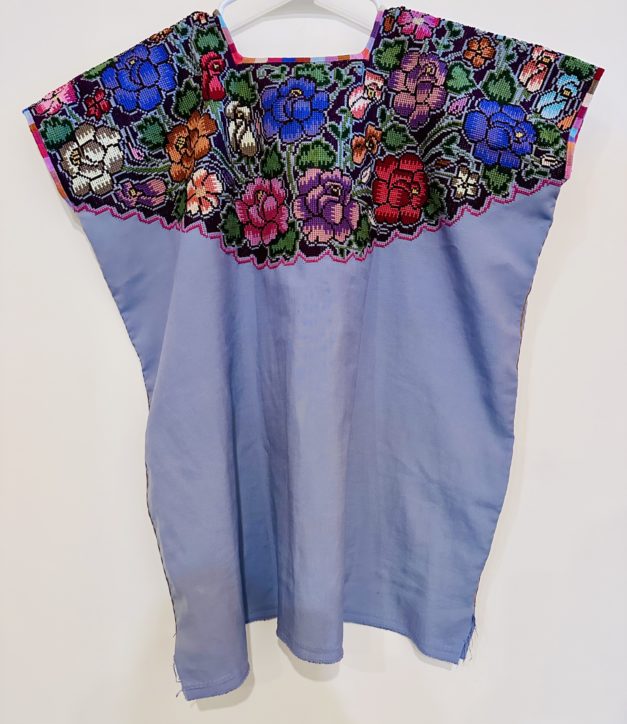Christmas in Teotitlan del Valle starts nine days before with posadas (procession) every night. The nine days represents nine months of Mary’s pregnancy, according to my Zapotec friends. On the first night, the baby Jesus is taken out of the creche in the church along with Mary and Joseph and carried through the streets under a tented portable altar, led by a group of musicians, many elderly, playing flutes, trumpets, trombones, clarinets and drums. A lay priest swings silver vessel filled with copal incense in front of the altar. They pass along a route that covers every neighborhood so that villagers can join in the procession, which often extends several blocks, and they march to the first home to host a posada. The next day, the posada will leave this house at dusk and move to the next house and so on and so on until December 23, when there is the posada ultima, a grand affair with prayers in the altar room of the home that is filled with copal incense and a greater feast than all the others. The village committee asks a household to host a posada and it is a great honor, but very expensive. It can cost $15-20,000 USD to host a posada because the entire village is invited to the feast. The term “guelaguetza”, which is Zapotec, in actuality means something like “obligation, pay back, exchange, mutual support.” So, families and extended families come together to lend money, provide beer and mezcal, contribute tamales (dulce, amarillo, pollo negro), turkey and guacalotes, and/or the labor to prepare them. To say “no” requires an explanation to the village committee, that not many want to have, and a “no” can trigger shame and isolation.
On December 24, families gather for a big Christmas dinner in their homes around 7 p.m. that includes three or four different kinds of tamales, chicken, nopal salad, fresh vegetables, fruits and pastries, accompanied by beer, wine and mezcal. We gathered, too, and after the dinner out came the gift exchange. It wasn’t until three or four years ago that the Chavez family started having a decorated tree and exchanging gifts. Zapotecs in the village tend to adhere more to a lower key gift exchange, but we are noticing now a stronger influence of American culture on the indigenous people and the overlay of the commercialization of the holiday season. After the gift exchange, we hear the sounds of the coming posada that will reach the corner of our street. Some run out to see the passing parade, and others in the family will join it as it continues on to the church, to reinstall the baby Jesus, Mary and Joseph in their permanent altars for another year. A midnight mass celebrates this and the close of the Christmas posadas.








